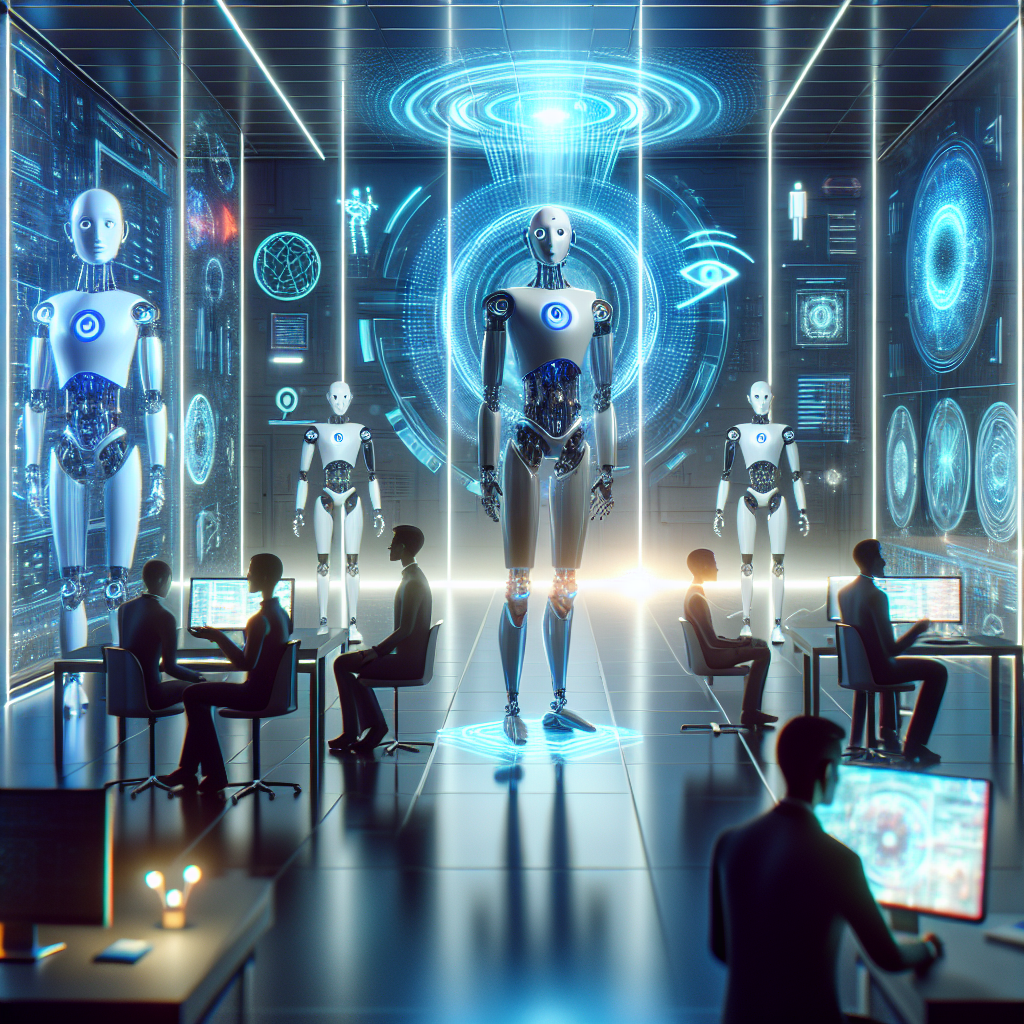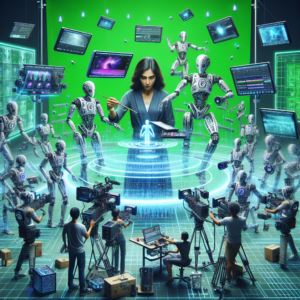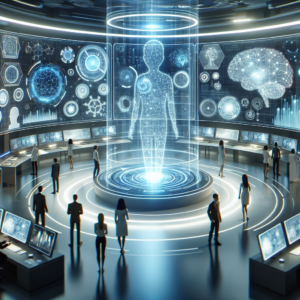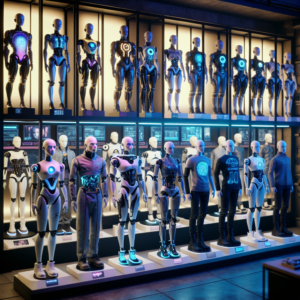Will 2025 Be the Year of Artificial Intelligence (AI) Agents? Nvidia’s CEO Jensen Huang Thinks So
In recent times, the discussion surrounding Artificial Intelligence (AI) has gained unprecedented momentum, particularly with the rise of AI agents that are designed to perform tasks autonomously. Nvidia’s CEO, Jensen Huang, is particularly optimistic about the future of AI agents, predicting that 2025 could be a pivotal year in this regard. This blog post will delve into the implications of Huang’s statement, exploring what advancements in AI might mean for industries, consumers, and the future landscape of technology.
The Current State of AI Technology
To understand the significance of Huang’s prediction, it’s essential to analyze the current state of AI technology. AI has become an integral part of various sectors, including healthcare, finance, and retail. Machine learning algorithms and deep learning networks are now capable of analyzing large datasets, making predictions, and automating routine tasks.
However, the capabilities of AI have been largely limited to specific applications, such as recommendation systems or predictive analytics. While these tools have revolutionized how businesses operate and interact with customers, they lack the versatility and autonomy that true AI agents would possess.
What Are AI Agents?
AI agents are sophisticated software systems capable of perceiving their environment, making decisions, and taking actions to achieve specific goals. Unlike traditional AI applications, which typically rely on predefined rules, AI agents utilize machine learning to adapt and improve their performance over time.
These agents can function independently, interacting with users and their environment in real-time. Whether it’s virtual assistants helping with scheduling, chatbots providing customer support, or autonomous vehicles navigating traffic, the potential applications for AI agents are vast.
Jensen Huang’s Vision for AI in 2025
Jensen Huang’s assertion that 2025 may mark the breakthrough year for AI agents is rooted in several key trends and advancements in technology. Here are some factors contributing to this optimistic outlook:
1. Enhanced Computational Power
Nvidia has been at the forefront of GPU (Graphics Processing Unit) technology, which plays a critical role in powering artificial intelligence applications. The continued development of more powerful GPUs will enable AI agents to process information faster and more efficiently. This increase in computational power is crucial for real-time decision-making and learning, which are essential functionalities of AI agents.
2. Improved Algorithms
The advancement of algorithms, particularly in the fields of natural language processing (NLP) and reinforcement learning, is pivotal for the evolution of AI agents. These improved algorithms allow AI agents to better understand human language, make more informed decisions, and learn from their experiences. As these algorithms continue to evolve, they will enable AI agents to perform increasingly complex tasks.
3. Greater Integration of AI in Daily Life
As the technology matures, we are likely to see a greater integration of AI agents into our daily lives. From healthcare applications that monitor patient conditions to smart home devices that learn our routines, AI agents could soon become commonplace. The more integrated these AI systems become, the more essential they will be in various aspects of life, potentially leading to widespread acceptance and utilization by 2025.
The Potential Impact of AI Agents
If Jensen Huang’s prediction comes to fruition, the impact of AI agents on society and industry could be profound.
1. Revolutionizing Industries
AI agents have the potential to revolutionize multiple industries by streamlining operations and improving efficiency. In healthcare, for instance, AI agents could assist in diagnostics, patient management, and even surgical procedures. In finance, they could automate trading and provide personalized financial advice, allowing for smarter investment decisions.
2. Enhancing User Experiences
With the implementation of AI agents, user experiences are poised to become more personalized and engaging. These agents can learn from user behavior, preferences, and feedback, allowing for tailored interactions that cater to individual needs. Whether in customer service or entertainment, AI agents could provide a level of customization that enhances satisfaction and loyalty.
3. Addressing Workforce Challenges
One of the key concerns surrounding AI is its impact on the job market. While some fear job displacement due to automation, AI agents could also create new opportunities. By taking over mundane and repetitive tasks, these agents may free up human workers to focus on more strategic and creative roles. As AI technology advances, industries may find themselves in need of skilled professionals who can develop, manage, and improve AI systems.
Challenges and Ethical Considerations
While the future of AI agents looks promising, it is essential to address the challenges and ethical considerations that come with their development.
1. Trust and Reliability
For AI agents to be effective, users must trust their capabilities. Ensuring that these agents operate reliably and transparently is vital. As they make more decisions on behalf of users, the potential for errors or biases could have significant consequences. It is crucial to develop robust systems that can mitigate these risks.
2. Privacy Concerns
As AI agents gather and analyze vast amounts of personal data, privacy concerns become paramount. Ensuring user data is handled securely and ethically will be a significant challenge. Striking a balance between personalized services and user privacy will be essential for the acceptance of AI agents.
3. Ethical AI Development
The ethical implications of deploying AI agents must also be considered. Issues surrounding accountability, decision-making, and bias need to be addressed. Developing ethical guidelines and frameworks that govern AI agents’ behavior and decision-making processes will be critical as they become more prevalent.
Conclusion
Jensen Huang’s vision for a future dominated by AI agents by 2025 is both exciting and challenging. Advancements in technology and understanding of AI are rapidly evolving, paving the way for significant changes across industries and society.
However, as we hurtle towards this future, it is crucial to address the accompanying challenges and ethical considerations to ensure that AI agents enhance human life rather than hinder it. The potential benefits of autonomous AI agents are immense, but their development must be approached with caution and responsibility. As we look ahead, it will be fascinating to see how the landscape of artificial intelligence evolves and how it ultimately shapes our world.



